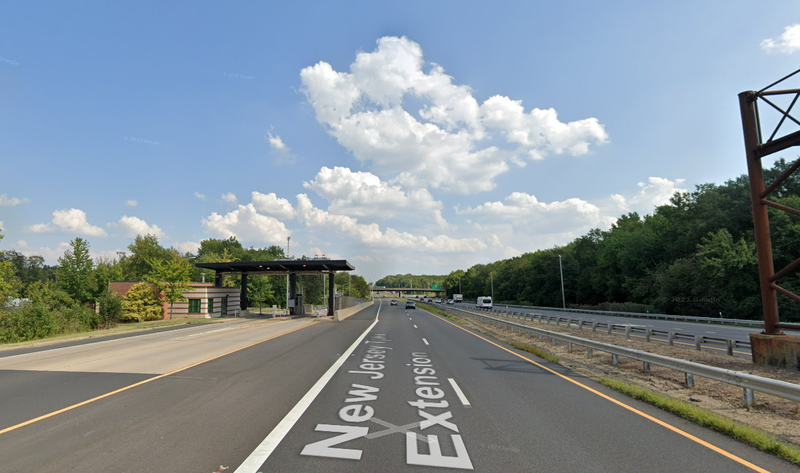Woman who suffered a stroke while behind the wheel is awarded $11.5M after cops accused her of being drunk
Woman who suffered a stroke while behind the wheel is awarded $11.5M after cops accused her of being drunk
Share:
A damning lawsuit revealed that New Jersey cops manhandled Cheryl Rhines as she lost total control of her bodily functions. A woman, arrested by New Jersey State Troopers who believed that she was driving under the influence, was this week awarded $11.5 million in damages by a jury who heard in court that she had in fact suffered a stroke behind the wheel and had her pleas for help ignored by the arresting officers.
![[Rhines pulled over here, along Route 78, close to Newark on that fateful day back in 2017]](https://static.independent.co.uk/2025/02/07/15/26/Screenshot-2025-02-07-at-15-40-42.png)
Cheryl Lynn Rhines was handed the enormous payout by an Essex County jury in the northern part of the Garden State after they also heard from her lawyers that as a result of the mistaken arrest, she was unable to get urgent medical treatment, leaving her permanently disabled. The officer in question placed Rhines, 57, on the hood of her car, while she suffered “facial drooping, drooping eyelids, a gaze, confusion”, and abandoned her, as Rhines, clearly in distress, struggled to even hold herself up.
The tragic incident occurred on October 17, 2017. Rhines, then 48, had set off for work like any other day, driving from her home in Jersey City to Florham Park where she worked as a senior marketing executive for BASF – a German chemical company. But suddenly, as she passed through the toll at the New Jersey Turnpike extension, she started to experience early onset symptoms of a severe stroke. Crucially, she had been wearing “professional business attire”, and there was no evidence of alcohol or drug paraphernalia in her vehicle at the scene, nor did she have any previous outstanding warrants, stated the suit.
The stroke had caused Rhines's body to seize up on the right side, hindering her speech, and thus rendering her unable to comply with demands such as putting the vehicle into park and turning off the ignition, said the suit. After troopers switched off the car’s ignition, they noted in the police report that Rhines was “unable to speak, write, or move in response to commands” and her face started to droop.
Now in a paraplegic state and in desperate need of help, Rhines attempted to exit her car, but lost total control of her bodily functions, said the suit. But rather than call for medical attention, the trooper arrested Rhines for “being under the influence of an unknown narcotic”, handcuffing and inappropriately manhandling her into the backseat of a police car. When she was eventually received at the hospital, medical staff found her with bruises across her arm, forearm, knee, and shin – injuries presumed to have been inflicted when she was being handled by police and fell to the pavement, the suit alleged.
Thus, the suit goes on, that the officers responsible for the mishandling, “knew and/or should have known her need for medical evaluation” and failed to act and call EMS at the appropriate time. There is a trauma center and recognized emergency stroke center just five minutes away from the crash site, the lawsuit reads, but rather than take her there, Rhines was in cuffs and on her way to the Somerville Trooper station.
It was only when someone at the station noticed her symptoms, that paramedics were called. The suit even stated that officers “mocked and ridiculed” Rhines on and off audio and video recordings of the incident, stating that she was “playing games” while undergoing the stroke. The debacle cost her two and half critical hours that were needed to save her mobility – decisions that could have resulted in her death if the stroke had been any more severe.
While medics managed to break up the clot in her brain, the delay caused by the troopers resulted in Rhines being left with “the death of significant brain function and permanent lifelong disability.”. Her life has been forever altered, as she can no longer work, and requires around-the-clock care. The horrendous ordeal has called the practices and training of New Jersey state police into question, specifically why they failed to prevail as trustworthy public servants and reliable first responders.
The suit surmised: “[The] defendant's conduct was so outrageous in character and so extreme in degree as to go beyond all possible bounds of decency and is regarded as atrocious and utterly intolerable in a civilized community. “Any ordinary human being observing Cheryl Rhines would have immediately recognized and called for emergent medical care.”. The Independent contacted Rhines’ attorney and the New Jersey state police for comment.



















